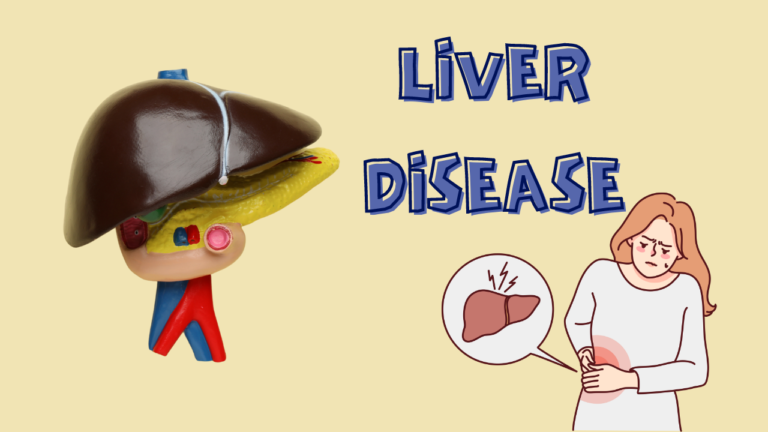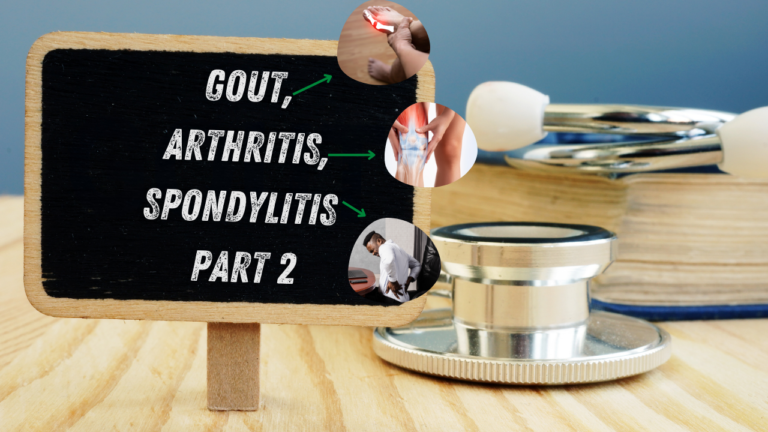HYPERSTENSION
Definition & Explanation
Hypertension, or high blood pressure, is a condition in which the pressure of blood against the walls of arteries is consistently higher than usual over the long term, generally more than 140/90 mmHg. It has been referred to as the “silent killer” since it typically has no apparent symptoms, but can slowly destroy essential organs. Shared risk factors are high salt consumption, obesity, stress, physical inactivity, smoking, alcohol use, aging, and family history. Hypertension, if not controlled, can cause dangerous complications like heart disease, stroke, kidney injury, and eye issues. Healthy lifestyle with a balanced low-salt diet, exercise, stress control, and avoidance of harmful habits should be ensured for prevention and control, while some individuals may need medications under medical supervision.

Root causes of hypertension from a naturopathic lens
- Mental and emotional stress
- Poor Diet
- lack of physical activity
- Toxin Accumulation (Ama)
- Sedentary Lifestyle
- Obesity & Visceral Fat
- Suppression of natural urges
- Environmental toxins and electromagnetic pollution
- Disturbed circadian rhythms

- Mental & Emotional Stress
- Negative feelings such as anger, fear, anxiety, and worry upset the natural balance of the body.
- These feelings directly stimulate the nervous system, over-working it.
- Stress causes hormones (adrenaline, cortisol) to release, which tighten blood vessels and increase heart rate.
- This results in elevated blood pressure and hard work for the heart.
- Chronic stress also upsets digestion, sleep, and elimination, leading to toxin accumulation (ama).
- Naturopathy emphasizes soothing the mind and nervous system to bring back equilibrium.
- Yoga, meditation, deep breathing, walking in nature, and positive thinking are all major practices to control stress naturally.
2.Poor Diet
A diet that is not balanced has been ranked among the top causes of hypertension in naturopathy since it upsets the body’s natural equilibrium and overloads the circulatory system. The wrong foods make toxins (ama), compromise digestion, and disrupt the body’s function of maintaining blood pressure.

- Excess Salt (High Sodium): Excess salt from pickle, fried food, and packaged foods results in water retention. This adds to the blood volume and causes additional stress on the arteries, increasing blood pressure.
- Processed Food: Fried, packaged, and processed foods consist of preservatives, unhealthy fats, and artificial additives that disrupts circulation, aggravates digestion, and leads to toxic buildup.
- Low Potassium: Less fresh fruit, vegetables, and natural foods in the diet mean less potassium consumption. Potassium relaxes blood vessels and balances sodium; without it, the pressure within the arteries is built up.
- lack of physical activity

- The body is designed to move, and regular exercise maintains flowing blood and energy. Motion aids healthy flow, enhances the flow of oxygen, and preserves flexibility in the heart, muscles, and blood vessels, helping to keep blood pressure in check.
- No movement or exercise reduces flow, making the heart exert more effort. Sedentary life causes the blood flow to become sluggish and thus the heart has to work harder to propel the blood into the arteries, eventually causing high blood pressure.
- Poor activity causes weight gain, placing added stress on the blood vessels. Lack of exercise slows down metabolism and leads to fat accumulation, particularly around the abdominal area. This constricts blood vessels and forces the heart to labor harder.
- It also leads to poor digestion and toxin accumulation (ama), placing further pressure within the body.
Sedentary lifestyle weakens digestion, induces constipation, and produces toxins (ama) that thicken blood, adding pressure to the arteries.
- Naturopathy recommends everyday natural exercises such as walking, yoga, stretching, and deep breathing.
Easy activities enhance blood circulation, lower toxins, manage weight, and soothe the mind, keeping blood pressure in check.
- Toxin Accumulation (Ama)
When digestion in naturopathy is poor or food is consumed improperly, it fails to be properly digested. This leads to waste products known as toxins (ama) in the system. These toxins get mixed with the blood, thicken it and make it heavier, and prevent free flow. This increases the burden on the heart and arteries over a period, causing hypertension. Unhealthy lifestyle such as excess food, late night eating, processed food, and improper elimination worsen toxin accumulation. Naturopathy recommends simple food, regular meal times, fasting, water intake, and natural methods of detoxifying the body to remove toxins and maintain blood pressure in check.
- Sedentary Lifestyle

- Long Sitting Hours: Spending a majority of the day sitting at a desk, in front of monitors, or otherwise not moving restricts natural body movement.
- Slowed Circulation: Limited movement causes blood flow to become sluggish, which places additional stress on the heart and arteries.
- Weight Gain & Obesity: The sedentary lifestyle typically causes fat to build up, particularly around the stomach, which compresses blood vessels and raises blood pressure.
- Poor Digestion & Constipation: Inactivity makes digestion weaker, metabolism slower, and toxin (ama) accumulation higher in the body.
- Obesity & Visceral Fat

- Visceral fat (fat stored around internal organs like liver, pancreas, intestines) is not just a passive energy storage.
- Excess fat drains your energy because it disrupts the body’s natural balance. Extra fat tissue demands more oxygen and nutrients, making the body work harder even at rest.
- Obesity also makes the heart work harder since the body needs additional blood to provide oxygen and nutrients for the excess fat. This causes increased blood volume and cardiac output, so the heart has to work harder than usual. Eventually, this continuous workload can increase blood pressure, harden the heart muscle, and contribute to heart diseases.
- Suppression of natural urges
- Ayurveda says that the body has some innate impulses (Vega) like passing water, stools, sneezing, yawning, hunger, thirst, sleeping, tears, etc. Suppressing these impulses (Vegadharana) deranges the normal flow of the body and causes imbalance in Doshas (Vata, Pitta, Kapha).
- Use of unnecessary or prolonged synthetic drugs, painkillers, sleeping pills, antibiotics, and steroids must be avoided unless absolutely necessary, as they can weaken the natural immunity, overload the liver and kidneys, and produce side effects.
- Toxic substances such as tobacco, alcohol, and cannabis should also be used strictly, as they spoil both body and mind.
- Rather, one can emphasize natural remedies, well-balanced diet, exercise, and management of lifestyle towards long-term health.
- Environmental toxins and electromagnetic pollution
- Environmental pollutants are poisonous chemicals found in our environment—like pesticides, industrial pollutants, plastics, heavy metals, and car fumes. These chemicals can enter the body by air, water, food, and skin and create issues like hormonal imbalance, respiratory illnesses, reduced immunity, and even chronic diseases.
- Electromagnetic pollution is caused by excessive use of electronic equipment and exposure to mobile phone radiation, Wi-Fi routers, towers, and other electronic devices. Ongoing exposure can disrupt sleep, stress levels, weaken concentration, and impact the nervous system and hormonal system.
- Disturbed circadian rhythms
The circadian rhythm is the body’s in-built 24-hour clock that governs sleep, wakefulness, release of hormones, digestion, and energy levels. When this rhythm is disrupted—because of late-night TV or computer use, irregular sleep patterns, night shifts, or excessive travel—the body’s natural equilibrium is lost. This can result in disturbed sleep, lack of energy, hormonal imbalance, digestive troubles, compromised immunity, mood disorders, and increased risk of lifestyle diseases.
Symptoms
- Headache and dizziness
- Blurred vision or eye strain
- Difficulty falling asleep or staying asleep
- Shortness of breath
- palpitations
Effects
- Increased risk of heart attack and stroke
- Damage to arteries due to high blood pressure and inflammation
- Kidney damage from disrupted blood flow and hormonal imbalance
- Cognitive decline affecting memory, focus, and brain health
- Weakened immunity, obesity, diabetes, and hypertension
Pathophysiology of Hypertension
Hypertension develops when there is a persistent rise in blood pressure due to increased resistance in the arteries or increased cardiac output.
These are some common symptoms:
- Kidney ( which help in manage fluid and salt )
- Blood Vessel ( which needs to stay flexible )
- Nervous System (which control how tight or relax the vessels)
When these parts won’t work well due to – stress , lifestyle and environment the blood pressure stays high for long time .This is called HYPERTENTION.
What Goes Wrong in Hypertension ?
What goes wrong in hypertension is the constant high pressure damaging blood vessels and overloading vital organs, leading to serious long-term complications.

Hypertension is a long-standing increase in blood pressure at or greater than 140/90 mmHg on multiple measurements. This is defined as the systolic pressure (higher reading) ≥140 mmHg and/or the diastolic pressure (lower reading) ≥90 mmHg. This ongoing high pressure overloads the blood vessels and heart, damaging organs such as the heart, kidneys, brain, and eyes.
Obesity insulin resistance OSA

Role of RAAS System
- The Renin–Angiotensin–Aldosterone System (RAAS) is an endocrine system that regulates blood pressure, fluid, and electrolytes.
- Release of renin – When blood pressure falls or kidneys detect less blood supply, they release renin.
- Formation of Angiotensin II – Renin acts on angiotensinogen (from liver) → angiotensin I → then converted into angiotensin II by ACE (Angiotensin-Converting Enzyme).
- Angiotensin II is a very potent vasoconstrictor, constricting arteries and raising blood pressure.
- Aldosterone release – Angiotensin II also causes adrenal glands to release aldosterone, which causes kidneys to hold sodium and water, increasing blood volume.
- Overall effect – Vasoconstriction + fluid retention = increased blood pressure.
Endothelial dysfunction
The endothelium is an extremely thin layer of cells that lines the inside of all of your blood vessels (like an inner skin on arteries and veins). Its work is to ensure blood flows smoothly, open and close blood vessels appropriately, prevent clotting, and lessen inflammation. Once this lining no longer functions normally, it is referred to as endothelial dysfunction.
pathophysiology of hypertension and the mechanisms behind the rise in blood pressure
Hypertension is a state of chronically elevated blood pressure due to augmented cardiac output, peripheral resistance, or both. Some of the major mechanisms involve overactivity of the sympathetic nervous system, renal sodium and water retention, and stimulation of the renin-angiotensin-aldosterone system (RAAS) with resulting vasoconstriction and volume overload. Endothelial dysfunction decreases vasodilation, and vascular remodeling makes the arteries stiffer, increasing resistance further. Genetic susceptibility, salt sensitivity, obesity, and stress are added factors. Together, these factors disrupt normal blood pressure regulation, resulting in sustained hypertension.
Related diseases, comorbidities, and consequences
- Coronary artery disease (CAD)
- Heart failure
- Stroke
- Chronic kidney disease (CKD)
- Hypertensive retinopathy
- Left ventricular hypertrophy (LVH)
- Peripheral artery disease (PAD)
- Vascular dementia
- Diabetes mellitus (common comorbidity)
controlling hypertension with naturopathy
- Detoxification therapies – fasting, hydrotherapy, steam baths
- Satvik, low-salt diet – fruits, vegetables, whole grains, avoid processed foods
- Yoga & Pranayama – relaxation and stress reduction
- Regular physical activity – walking, swimming, stretching
- Weight management – gradual and sustainable
- Stress management – meditation, mindfulness, adequate sleep
Naturopathic approach to hypertension – the root healing philosophy
- Detoxification – Eliminates toxins from the body by fasting, cleansing, and natural elimination, which decreases blood vessel strain.

- Mud Therapy – Mud packs and baths reduce body heat, increase circulation, calm the nervous system, and assist in lowering BP.

- Diet Therapy – A satvik, plant-based, low-sodium diet consisting of fruits, vegetables, and whole grains improves vascular health and regulates sodium.

- Hydrotherapy – Hip baths, cold packs, and treatments with water control circulation, relax the vessels, and improve kidney function.
- Massage Therapy – Soft massage alleviates stress, enhances blood flow, relaxes muscles, and quiets the nervous system.
- Sunbathing / Helio Therapy – Supplies vitamin D, enhances metabolism, improves mood, and aids cardiovascular balance.
- Yoga & Pranayama – Asanas and breathing exercises relax the mind, decrease sympathetic activity, and facilitate natural BP regulation.

- Emotional Healing & Stress Management – Meditation, mindfulness, and counseling decrease anxiety, tranquil the mind, and avert stress-induced hypertension.
Herbal and natural remedies for hypertension
- Garlic – Natural vasodilator, enhances blood flow, and lowers blood pressure.
- Hibiscus Tea – High in antioxidants; research indicates lowering systolic and diastolic BP.
- Flax Seeds – Have omega-3s and lignans that lower arterial stiffness.
- Lemon Water – Detoxifies, enhances vessel elasticity, and normalizes sodium-potassium balance.
- Coriander & Fenugreek Seeds – Aid in water balance and lower high BP naturally.
- Ashwagandha – Lowers stress hormones and relaxes the nervous system.
- Brahmi – Facilitates mental tranquility, curbs anxiety-induced hypertension.
- Tulsi (Holy Basil) – Enhances blood circulation, stabilizes stress, and builds immunity.
- Arjuna Bark – Has long been utilized in heart care, enhances cardiac muscles, and controls BP.
- Celery Seeds – Natural diuretic that supports the expulsion of excess sodium and water.
Conclusion
Hypertension is not life-threatening but a signal of balance derangement of life and mind. It emerges out of causes such as poor eating habits, toxin buildup, stress, and lack of exercise, causing damage to the heart, brain, kidneys, and eyes if not checked. The best part is that it can be prevented and controlled naturally. Naturopathy addresses the underlying causes through detoxification, healthy eating, yoga, stress management, and herbal assistance. It balances the system, enhances self-healing, and prevents complications. Essentially, hypertension needs to be addressed by a lifestyle transformation that harmonizes the body with nature for long-term wellness.








